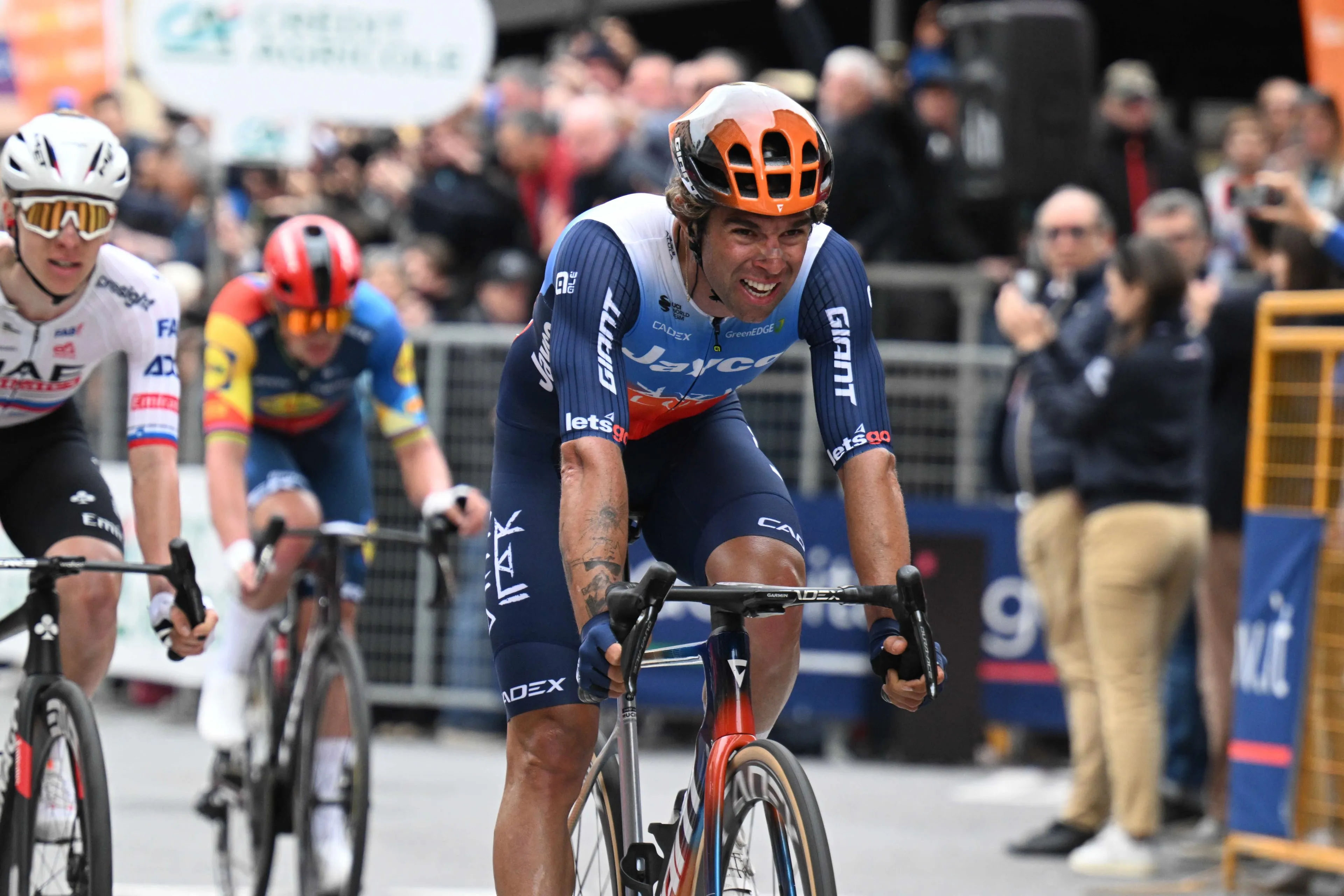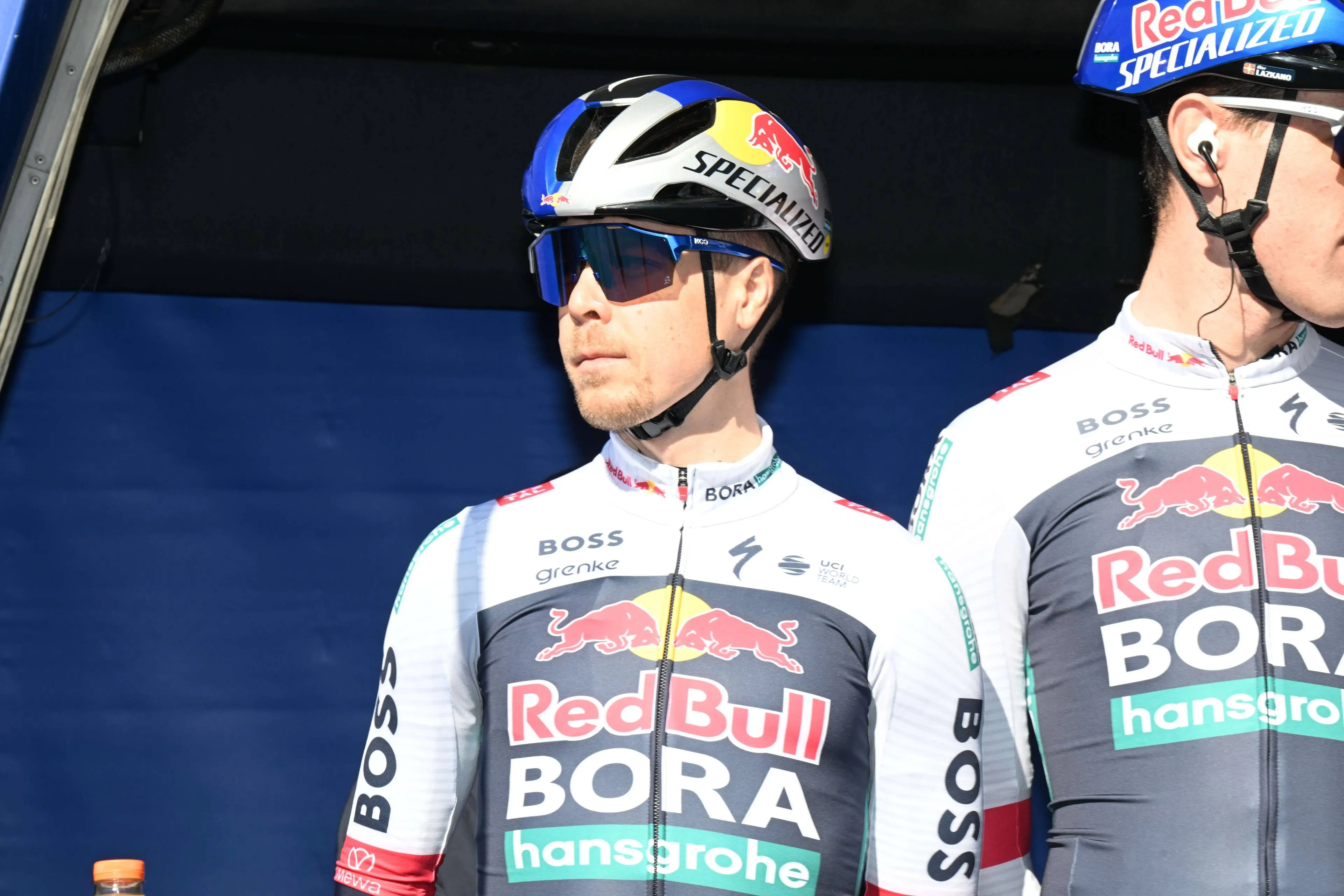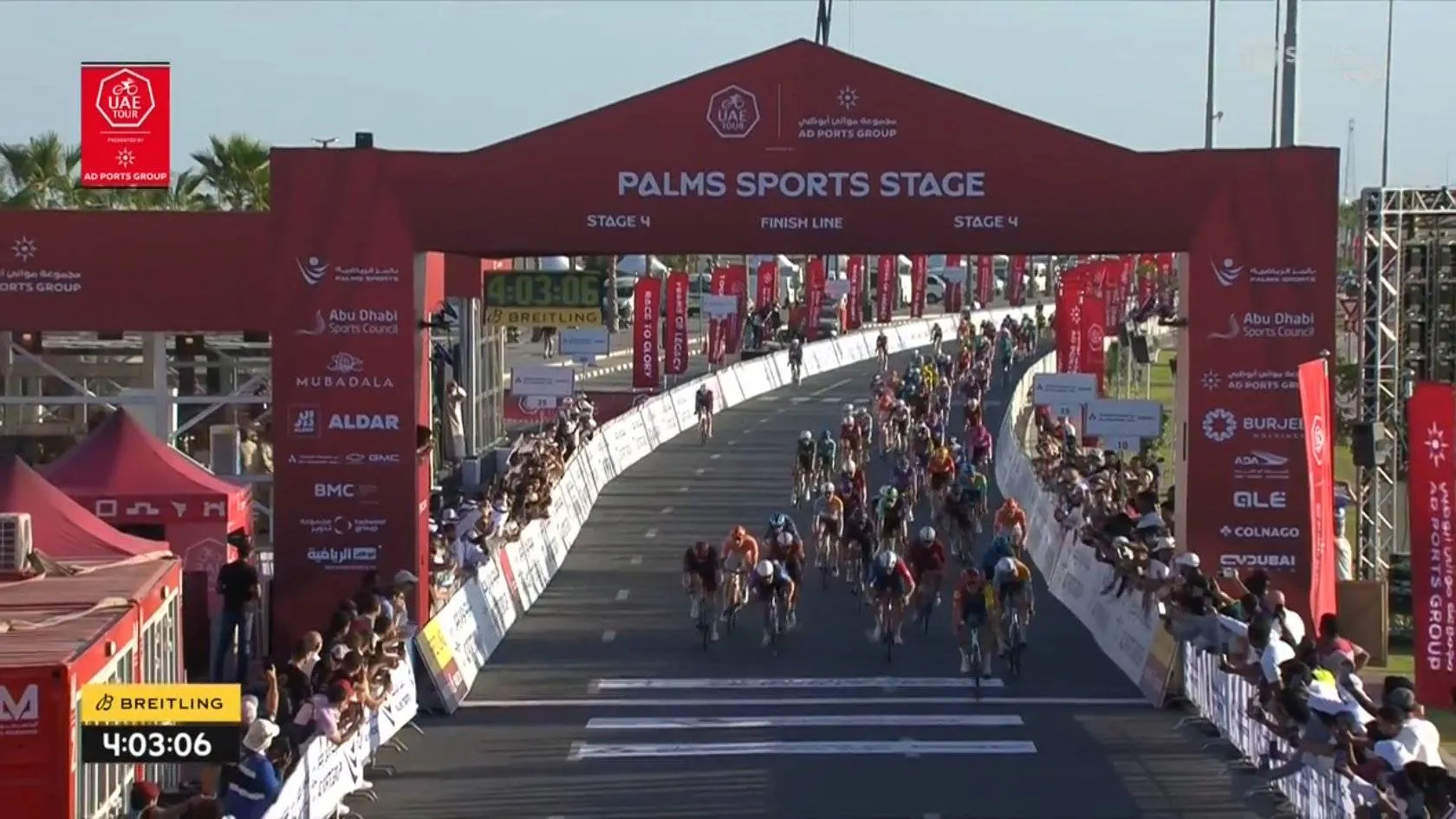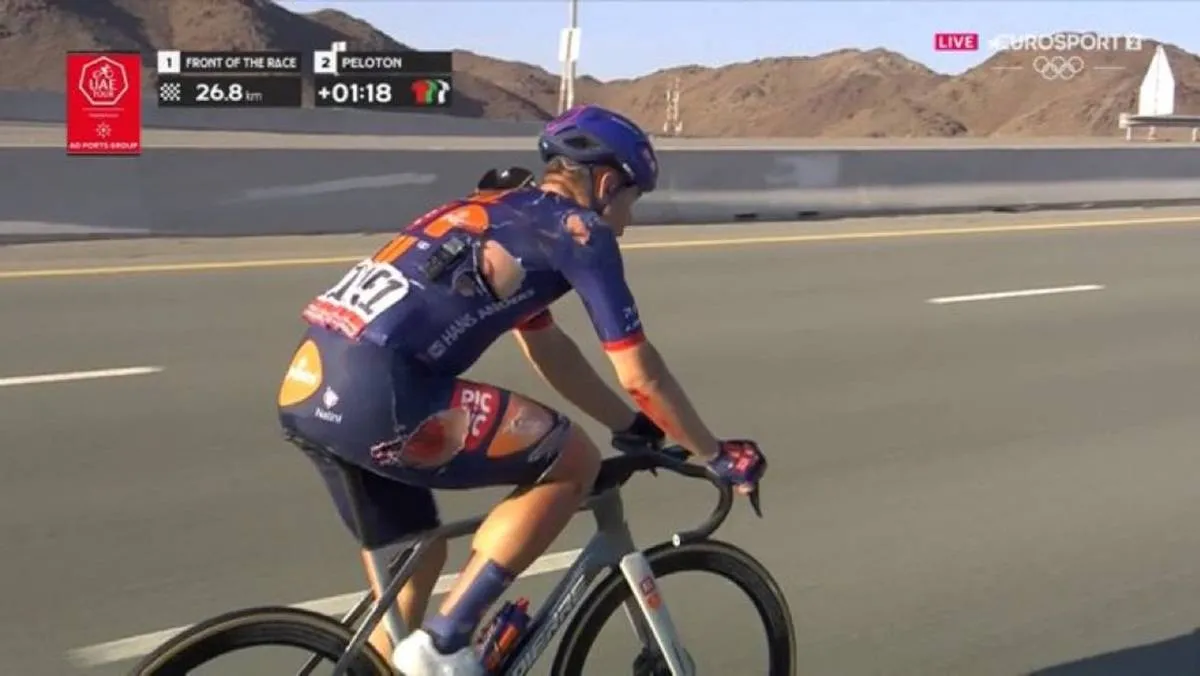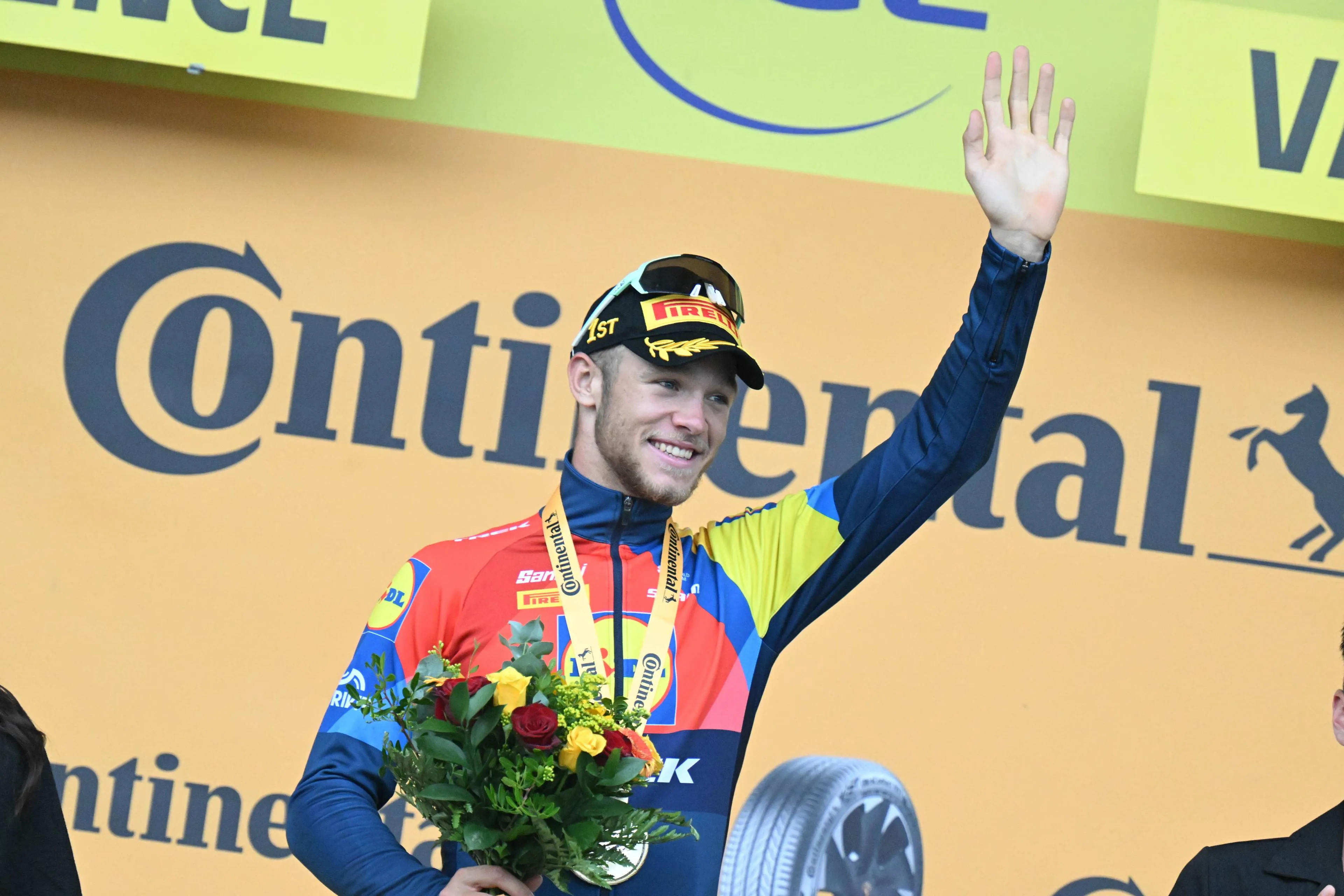XDS Astana Team DS talks racing without Mark Cavendish and World Tour survival: "Everything takes place in a sort of vicious circle"
CyclingWednesday, 26 February 2025 at 12:00
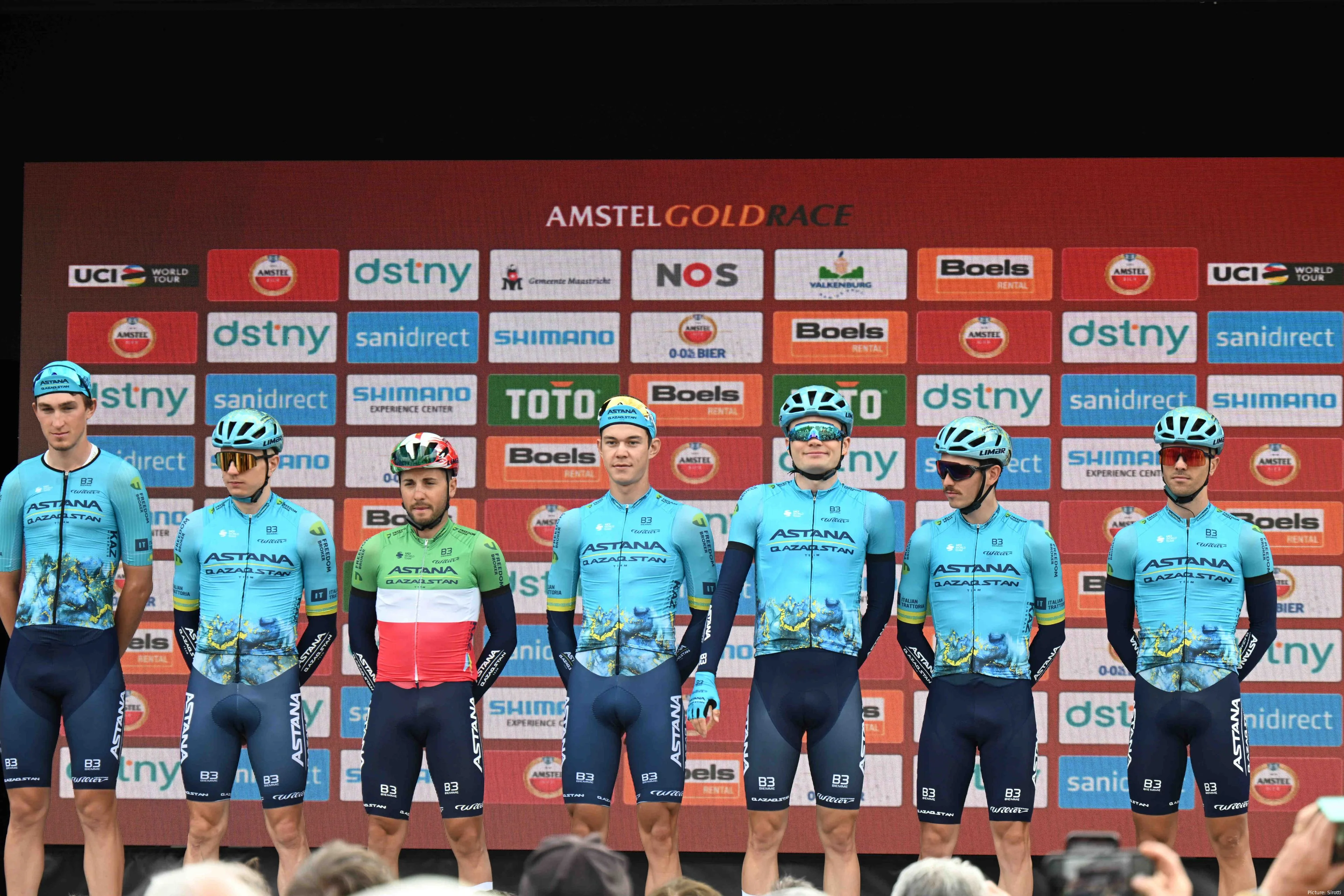
XDS Astana’s director sportive Dario Cataldo recently spoke
with Wielerflits about the team’s ambitions for 2025, a pivotal season
as they begin life without Mark Cavendish and fight to secure their World Tour
license. Despite the challenge ahead, their campaign is off to an impressive
start.
With UAE Team Emirates – XRG leading the UCI WorldTour
rankings at 3563.72 points, XDS Astana currently sits in second place with 2266.66
points, ahead of Movistar Team in third. More importantly, they have already
built a 1000-point gap over their relegation rivals Cofidis, giving them a
strong foundation in their battle to remain at the top level.
Read also
Cataldo acknowledged that the team has undergone significant
restructuring, as Astana’s struggles in recent years forced them to rethink
their approach.
“As often happens in sport, everything takes place in a sort
of vicious circle,” he explained. “There are periods in which you are at the
top as a team, but also periods in which other teams rise to prominence.
“At Astana, it was felt that something was missing for
years, and even the team itself realized that it needed big changes to get back
to the top. They started doing it last year. The big goal for 2024 was the
historic stage victory at the Tour de France with Mark Cavendish. The first
innovations were implemented in this context. But then it became clear that
much more was needed to reach our level again in 2025.”
Read also
The rebuilding process has been a long-term effort, as the
team worked to identify key weaknesses and implement solutions.
“The research took a long time,” continued the 39-year-old.
“It wasn’t always easy to understand what exactly was missing. And how to fill
those gaps. Plus, you can’t achieve something like this in two days. It’s a
combination of good riders, good staff members and good materials that ensures
a motivated group. Good results are achieved when all these pillars come
together.”
One of the most significant changes for Astana this year is
the arrival of Chinese bicycle manufacturer XDS as the team’s new title sponsor.
Cataldo explained the motivation behind the deal and how it is shaping the
team’s future.
Read also
“They are the main bicycle manufacturer in China. Until now,
they only sold bicycles in China. Their idea was to spread their brand to the
rest of the world. That's why they chose our team to develop their project.
They have a lot of experience in building high-end frames and the results they
were able to present to us were already very good.
“But they also have a lot of ideas to continue improving and
innovating. They have already put forward proposals to make the bikes even
better, and I hear positive feedback from the riders.”
The sponsorship also provides a financial boost, giving
Astana more resources to compete at the top level. However, Cataldo emphasised
the importance of balancing financial backing with performance quality.
“That’s part of the deal. But the team has thought about it
carefully. If a bike supplier gives you a lot of money but produces low-quality
bikes, you know you’re going to lose a lot and the results won’t follow you.
Conversely, if you get a great bike but don’t have the money, there’s no budget
to attract good riders and build a good team. It’s always about finding the
right balance, and we’ve found that with XDS.”
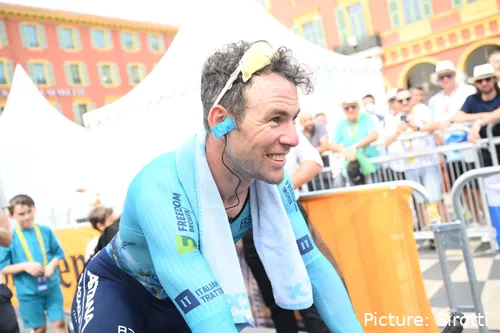
XDS Astana Team are without the now retired Mark Cavendish in 2025
Despite Astana’s identity as a Kazakh-backed team, Cataldo
acknowledged that the squad has had to prioritise competitiveness over
nationality in its recruitment strategy.
“The team continues to work hard to allow Kazakh talents to
blossom, but this takes time. It is not something that can be forced. Having
said that, we have always been an international team. I know that a large part
of the rider pool has always been Kazakh, but for this season we had to make
choices to have the best riders in the scene.
“We opted for riders who have shown they can be consistent
throughout the season. There were also very good riders who can only reach
their peak in a few races a season, but we ignored them. We have all guys who
can get a lot of points in all the one-day races and short stage races. They
know what they have to do, we have a good core.”
Read also
With relegation pressure looming, Astana has strategically
planned its race calendar to maximise its chances of staying in the WorldTour.
“We still believe in it. Not only do we have good riders,
but we have also made some smart choices in the calendar. In any case, there is
a good strategy, but it is mainly focused on this year. If next year we are no
longer in the WorldTour, will it be a disaster? There are still great teams
that are no longer WorldTeams, but they can still participate in all the big
races. Of course, you can lose some races, but you can continue to race at a
high level.”
Read also
claps 0visitors 0
Just in
Popular news
Latest comments
- OK, today is the "air conditioner"... yesterday was a cramp... on saturday a bee will sting him in his tongue... his tongue will swell up and mustafa gets no oxygen. Because of his swollen tongue, Remco won't be able to give us a new excuse. Remco and the spanish rat Ayuso should be on the same team. They both have a ton of excuses and both of them are liars. Ad acta.Mou-Cro-HR19-02-2026
- Florian Lipowitz is secretly happy
 Rafionain-Glas19-02-2026
Rafionain-Glas19-02-2026 - The crucial thing to remember is that Remco was broken by the pace of Gall and Tiberi, not Del Toro's. Remco's excessive antics are because he doesn't want anyone to think that he's 'genuinely' struggling. You can always say 'he got cramps' because 'his preparation didn't go to plan', but the thing is that there is a limit to the number of excuses and exceptions that there can be. Eventually everyone just accepts that he's reached his ceiling on the climbs.
 Rafionain-Glas19-02-2026
Rafionain-Glas19-02-2026 - Bahraini suspicious..Santiago19-02-2026
- The problem is, a British 'boss' opening the gates, when the native workers not wanting them!
 leedorney19-02-2026
leedorney19-02-2026 - Who is overrating him on climbs? Everyone knows since ages it’s his weakness and needed years of work. Question us if he can do enough about it. For sure he won’t be able to improve his TT enough to compensate.Mistermaumau19-02-2026
- What do you call only seeing someone’s positives?Mistermaumau19-02-2026
- Remco banging his leg, just like he banged his saddle when pog dropped him. He ain't fooling anyone with those antics. I'm not a hater, but he's a bit overrated on serious climbs.Santiago19-02-2026
- Obviously isn’t learning from the Epstein fallout. The more you unravel the past the more undiscovered mess appears.Mistermaumau19-02-2026
- I like Tadej a lot (a lot, a lot) but you're a little exxagerated... Allow me to give you some advice: Never become a fanatic for something or someone (neither pro nor against, haters are against-fanatics). And never idolize human beings.
 maria2024202419-02-2026
maria2024202419-02-2026
Loading
Write a comment


